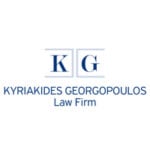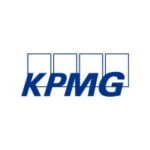-
Climate – the law governing operations that emit Greenhouse Gases (e.g. carbon trading) is addressed by Environment and Climate Change international guides, in respect of ESG: a. Is there any statutory duty to implement net zero business strategies; b. Is the use of carbon offsets to meet net zero or carbon neutral commitments regulated; c. Have there been any test cases brought against companies for undeliverable net zero strategies; d. Have there been any test cases brought against companies for their proportionate contribution to global levels of greenhouse gases (GHGs)?
a. Is there any statutory duty to implement net zero business strategies;
b. Is the use of carbon offsets to meet net zero or carbon neutral commitments regulated;
The use of carbon offsetting to meet neutrality commitments is based on several legislative and regulatory standards, both at national and European Union level, including the Climate Law of 15 December 2020, as amended, and Regulation (EU) 2021/1119 of 30 June 2021 establishing the framework for achieving climate neutrality (“European Climate Law”).
Implementing in particular the objectives of the Paris Agreement as well as more specific EU level commitments, the Climate Law has introduced a climate neutrality target for 2050 and a 55% emission reduction target for 2030. Further to the overall targets, the Climate Law has also introduced sectoral climate targets, setting annual emissions allocations over 10-year periods. Furthermore, the Climate Law reflects obligations and arrangements resulting notably from Directive 2003/87/EC of 13 October 2003 establishing a scheme for greenhouse gas emission allowance trading within the Union, as amended (“EU ETS Directive”), and related texts, describing emission permit and trading systems for the aviation sector and stationary installations in particular.
In addition, Luxembourg has adopted an Integrated National Energy and Climate Plan (NECP) for 2021-2030, which sets a target to reduce greenhouse gas emissions by 55% by 2030 (relative to 2005), while Luxembourg’s National Air Pollution Control Programme (NAPCP) aims, among other things, to reduce fine particle pollution (PM2.5) by 40% by 2030 (relative to 2005). To achieve these targets, Luxembourg has identified measures across a variety of sectors, including transport, household energy, agriculture and waste but the NECP remains a policy document to be translated in specific measures.
Finally, regarding net zero business strategies, certain obligations result from the EU rules on company non-financial reporting with respect to sustainability, notably the EU Taxonomy Regulation and the NFRD/CSRD legal framework, which are further defined and discussed in response to questions 17 and 18 below, including with respect to their current amendment. Companies in scope of the reporting obligation under the EU Taxonomy Regulation must report on turnover derived from, and expenditure relating to, environmentally sustainable activities, which includes their potential contribution to the attainment of the goals of the Paris Agreement. Likewise, the CSRD currently requires in-scope companies to include in their non-financial reporting their plans to ensure that their business model and strategy are compatible with the transition to a sustainable economy and with the limiting of global warming to 1.5°C in line with the Paris Agreement and the objective of achieving climate neutrality by 2050.
c. Have there been any test cases brought against companies for undeliverable net zero strategies;
d. Have there been any test cases brought against companies for their proportionate contribution to global levels of greenhouse gases (GHGs)?
Although there is some litigation before the administrative courts with respect to the application of the GHG emissions trading system, to the best of our knowledge, at this stage, no lawsuits have been filed in Luxembourg against companies for their undeliverable “net zero” strategies or for their proportionate contribution to levels of GHGs.
-
Biodiversity – are new projects required to demonstrate biodiversity net gain to receive development consent?
The Environmental Impact Assessment Law of 15 May 2018, as amended, provides that projects for the carrying out of construction works or other installations or structures as well as other interventions in the natural environment or landscape, including those intended for the exploitation of soil resources, are subject to an environmental impact assessment. The environmental impact assessment must evaluate the impact of in-scope projects on a number of factors, including biodiversity, paying particular attention to protected species and habitats.
Likewise, a project requires authorisation from the Minister of the Environment in the event of destruction, reduction or deterioration of a biotope under the Environmental Impact Assessment Law.
In addition, the non-financial reporting obligations mentioned in response to question 1 cover information on companies’ environmental impact, including on biodiversity.
-
Water – are companies required to report on water usage?
Under the Law of 10 June 1999 on classified establishments, as amended, the applicant for an operating license for a classified establishment, i.e. any establishment or installation operating in the industrial, commercial or craft sector, whether public or private, and any activity, process or ancillary activity which may present a risk or inconvenience to the protection of health, hygiene or well-being of the public, the neighbourhood or the staff of these establishments, or to the health and safety of the workers and the human and natural environment, must indicate in the license application file envisaged water withdrawals and discharges into water.
In addition, the non-financial reporting referred to in response to question 1 must include information on companies’ environmental impact, including regarding the sustainable use and protection of water and marine resources.
-
Forever chemicals – have there been any test cases brought against companies for product liability or pollution of the environment related to forever chemicals such as Perfluoroalkyl and Polyfluoroalkyl Substances (PFAS)?
To date, we are not aware of any pilot lawsuits in Luxembourg that have been brought against companies in relation to PFAS.
-
Circularity – a. The law governing the waste hierarchy is addressed by the Environment international guide, in respect of ESG are any duties placed on producers, distributors or retailers of products to ensure levels of recycling and / or incorporate a proportionate amount of recycled materials in product construction? b. Are any duties placed on producers, distributors or retailers of products to handle the end-of-life of the products placed on the market?
The Law of 21 March 2012 on waste management, as amended, sets out the general regime of extended producer responsibility. Producers must assume financial and/or organisational responsibility for the prevention, reuse and management of the “waste” phase of a product’s life cycle. Extended producer responsibility obligations can be delegated to a specific organisation.
Likewise, operators of establishments or companies are required under the above-mentioned law to reduce the production and harmfulness of waste, and must draw up a waste prevention and management plan.
In addition, the non-financial reporting obligations mentioned in response to question 1 cover information on companies’ environmental impact, including regarding the transition to a circular economy.
-
Plastics – what laws are in place to deter and punish plastic pollution (e.g. producer responsibility, plastic tax or bans on certain plastic uses)?
The Law of 21 March 2017, as amended, on packaging and packaging waste applies to all packaging placed on the Luxembourg market and to all packaging waste. The aim of this law is to sustainably reduce packaging consumption on Luxembourg territory.
In addition, the Law of 9 June 2022 on reducing the environmental impact of certain plastic products is relevant. It applies to the single-use plastic products listed in its Annex I, to products made from oxodegradable plastic and to fishing gear containing plastic. This law prohibits the marketing of certain plastic products.
These laws provide for administrative measures and criminal sanctions in the event of non-compliance with certain specific obligations.
Furthermore, Regulation (EU) 2025/40 of 19 December 2024 on packaging and packaging waste establishes environmental sustainability and labelling requirements for the entire life cycle of packaging to allow it to be placed on the market. It applies to all packaging, whatever the material used, and to all packaging waste. It also sets out requirements for extended producer responsibility, the prevention of packaging waste, such as the reduction of unnecessary packaging and the reuse or refilling of packaging, and the collection and treatment, including recycling, of packaging waste. By 12 February 2027 at the latest, Member States must lay down the rules on penalties applicable to infringements of this Regulation and the measures necessary to ensure that they are implemented.
-
Equality Diversity and Inclusion (EDI) – what legal obligations are placed on an employer to ensure equality, diversity and inclusion in the workplace?
In Luxembourg, the principle of equality is enshrined in Article 10bis of the Constitution, guaranteeing that all individuals are equal before the law. This is further reinforced by public policy rules set out in the Labour Code which uphold equal treatment between men and women and prohibit discrimination in the workplace. For instance, the Labour Code prohibits direct and indirect discrimination based on sex, origin, disability, religion, age or sexual orientation. This applies to all aspects of the employment relationship, including recruitment, pay, promotion, working conditions and dismissal. Positive actions are also framed by law. In addition, employers must comply with mandatory rules relating to sexual, moral and discriminatory harassment, requiring to adopt specific measures and provide appropriate training to the employees. Discrimination is also sanctioned under criminal law (Articles 454 et seq. of the Penal Code).
Looking forward, the upcoming transposition of the EU Pay Transparency Directive (2023/970) into Luxembourg law is expected to introduce new obligations, including pay reporting, employee access to pay level information, and justification requirements for pay gaps — all aimed at reinforcing gender equality and pay transparency.
In companies with at least 15 employees, the employee representatives play a key role in monitoring compliance with EDI obligations and must receive from the employer specific information, including data and statistics broken down by gender on recruitment, promotions, transfers, dismissals, pay and training of the employees. An equality delegate must also be appointed within the members of the staff delegation to be responsible for promoting gender equality and addressing related concerns.
Beyond legal compliance, ESG considerations are increasingly driving companies to implement broader inclusion strategies and internal policies to foster equitable and diverse workplaces, and contribute not only to regulatory alignment, but also to long-term sustainability and employee engagement.
-
Workplace welfare – the law governing health and safety at work is addressed in the Health and Safety international guide, in respect of ESG are there any legal duties on employers to treat employees fairly and with respect?
In Luxembourg, employers are legally required to treat employees fairly and with respect, particularly through obligations relating to health, safety and workplace welfare.
Pursuant to Article L.312-1 of the Labour Code, employers must ensure the safety and health of employees in all aspects of work. According to established case law, this is considered in principle as an obligation to achieve a fixed result, meaning the employer is liable in case of harm, regardless of fault. This duty includes the prevention of psychosocial risks, such as stress, burnout or harassment. Article L.312-2 reinforces the duties by requiring employers to conduct regular risk assessments on health and safety at the workplace and implement appropriate preventive measures.
Fair and respectful treatment is further supported by anti-discrimination provisions (Articles L.241-1 et seq. and L.251-1 et seq.), which guarantee equal treatment and contribute to an inclusive, dignified work environment.
The Labour Inspectorate (Inspection du Travail et des Mines – ITM) oversees compliance and may intervene and sanction employers in case of breaches affecting workers’ health and safety.
Finally, in line with evolving ESG standards, the right to disconnect has been introduced in the Labour Code by the Law of 28 June 2023 (Article L. 312-9 et seq.), requiring employers to take measures safeguarding rest periods and work-life balance, particularly in digitally connected environments — reinforcing mental health protection, employee well-being and respect at work.
-
Living wage – the law governing employment rights is addressed in the Employment and Labour international guide, in respect of ESG is there a legal requirement to pay a wage that is high enough to maintain a normal standard of living?
The Luxembourg Labour Code provides for a statutory minimum wage (salaire social minimum) aimed at ensuring a decent standard of living for workers (Articles L.222-1 et seq.). On 1 January 2025, the monthly minimum wage was set at EUR 2,637.79 gross (index 944.43). This applies to all employees, including posted workers. The minimum wage is increased by 20% for qualified workers (EUR 3,165.35) and reduced for certain younger employees depending on age.
Wages are indexed to the cost of living and adjusted proportionally to reflect inflation and economic conditions (Article L.222-3). Indexation is a public order rule and employers must apply the mandatory 2.5% salary increase when triggered.
Legal provisions also restrict the types of wage deductions employers may apply, to safeguard decent pay levels. Employers are further required to provide clear payslips and transparent information on remuneration, in line with obligations on transparent and predictable working conditions.
These rules reflect Luxembourg’s commitment to social protection and inclusion, ensuring access to basic needs and social participation.
Based on ESG considerations, companies are increasingly encouraged to adopt broader remuneration policies and packages. This includes aligning pay with actual living costs — particularly relevant in high-cost economies like Luxembourg. Integrating living wage principles into HR strategies can promote employee well-being, improve retention, strengthen employer branding, and support the “Social” pillar of ESG. While not legally required, such measures are positively perceived by stakeholders and contribute to responsible, sustainable business practices.
-
Human rights in the supply chain – in relation to adverse impact on human rights or the environment in the supply chain: a. Are there any statutory duties to perform due diligence; b. Have there been any test cases brought against companies?
a. Are there any statutory duties to perform due diligence;
Currently, there is no Luxembourg legal requirement to conduct due diligence on adverse impacts on human rights or the environment in the supply chain. However, the Corporate Sustainability Due Diligence Directive (“CSDDD”), which has yet to be transposed into Luxembourg law, mandates large companies (with a turnover exceeding EUR 450 million and more than 1,000 employees) to perform due diligence regarding actual and potential adverse impacts on human rights and the environment concerning their own operations, their subsidiaries and their “business partners” in the companies’ “chain of activities”. The extent to which these obligations will be altered during the legislative process for the Omnibus Package, published by the EU Commission on 26 February 2025, which aims to simplify, among other things, the CSDDD, remains to be seen.
Furthermore, the EU Deforestation Regulation, applicable from 30 December 2025 (and from 30 June 2026 for micro, small and medium-sized enterprises), establishes due diligence obligations for operators and traders placing certain commodities on the EU market or exporting them from the EU market. The due diligence includes a risk assessment to determine whether these products comply with the Regulation, taking into account factors such as violations of international human rights and information about operators’ or traders’ past non-compliance with the Regulation along the supply chain.
Lastly, the EU Conflict Mineral Regulation, applicable in its entirety as from 1 January 2021, also sets out due diligence obligations in the supply chain for importers of certain metals, including gold, originating from conflict-affected and high-risk areas. Those due diligence obligations include risk assessments of adverse impacts on human rights in the minerals supply chain.
b. Have there been any test cases brought against companies?
Since the framework is not yet fully applicable, there are no test cases so far in Luxembourg.
-
Responsibility for host communities, environment and indigenous populations – in relation to adverse impact on human rights or the environment in host communities: a. Are there any statutory duties to perform due diligence; b. Have there been any test cases brought against companies?
a. Are there any statutory duties to perform due diligence;
The EU Deforestation Regulation requires due diligence by operators and traders, including regarding the consideration of the rights of indigenous peoples. See the answer to question 10 above for further details on its scope and timing.
b. Have there been any test cases brought against companies?
Since the framework is not yet applicable, there are no test cases so far in Luxembourg.
-
Have the Advertising authorities required any businesses to remove adverts for unsubstantiated sustainability claims?
Luxembourg’s Advertising authorities are the Luxembourg Advertising Council (Conseil de la Publicité du Luxembourg) and the Commission for Ethics in Advertising (Commission pour l’Ethique en Publicité), both operational since 19 May 2009. The Luxembourg Advertising Council is responsible for promoting, developing and defending advertising and its freedom, as well as implementing advertising self-regulation on the basis of its advertising Code of Ethics. The Commission for Ethics in Advertising has a consultative role and ensures compliance with the Code of Ethics.
Article 5 of the Code of Ethics on environmental responsibility provides guidance on environmental statements, stating that “advertising using environmental claims or claims of an ecological nature must be such as not to mislead the consumer and not have as its main purpose to attract his attention or that of the public or to increase their expectations”.
While the Luxembourg Advertising Council enforces environmental responsibility in advertising, its decisions are not published. We cannot therefore confirm the existence of interventions from its side but see also the responses to questions 13 and 14 below concerning regulatory intervention relating to sustainability claims.
-
Have the Competition and Markets authorities taken action, fined or prosecuted any businesses for unsubstantiated sustainability claims relating to products or services?
Contrary to certain other national competition authorities, the Luxembourg Competition Authority has no competence with regard to consumer protection. Cases involving misleading practices, such as misleading advertising, are instead addressed under the general Consumer Code, which is enforced by the Directorate of Consumer Protection, which is part of the Ministry of Agriculture, Food and Viticulture. Its investigations and decisions are not public.
That being said, there are regulatory interventions in the broader field of sustainability claims relating to ESG standards, more specifically in the financial sector.
Generally, the Commission de Surveillance du Secteur Financier (“CSSF”), the supervisory authority of the financial sector, identified in March 2024 appropriate transparency and disclosures resulting from obligations imposed on financial sector undertakings by the various EU and national legal texts in the ESG field as a supervisory priority for its actions regarding sustainable finance.
In November 2024, the CSSF imposed an administrative fine of 56,500 euros on the investment manager Aviva Investors Luxembourg S.A. for breaches in the company’s internal governance framework. While the fine is based on shortcomings in internal governance, the observations of the CSSF concerned sub-funds of an investment fund under management which were classified by Aviva as promoting “environmental and social characteristics” under Article 8 of the SFDR (see response to question 18 below on this Regulation). The CSSF noted in particular that internal filtering processes did not guarantee compliance with the advertised sustainability characteristics of the funds in the prospectus.
To further combat greenwashing with respect to sustainable financial products, the CSSF issued recommendations to investors on its platform www.letzfin.lu inviting them to think critically and not to rely blindly on labels and promises of sustainability.
Finally, reference can be made to Directive (EU) 2024/825 of 28 February 2024 as regards empowering consumers for the green transition through better protection against unfair practices and through better information (“Green Claims Directive”). The Directive amends existing consumer protection directives and sets out common criteria that businesses must meet in order for certain environmental claims about their products to be compliant. It has yet to be transposed into Luxembourg law.
-
Have there been any test cases brought against businesses for unsubstantiated enterprise wide sustainability commitments?
Not to our knowledge. The economy of Luxembourg is largely based on the financial sector. Reference is made to the response to question 13 regarding the CSSF’s action with respect to sustainability claims in the financial sector. See also the case mentioned in response to question 16.
-
Is there a statutory duty on directors to oversee environmental and social impacts?
Under Luxembourg corporate law, directors have a general duty of care to make sure the company is compliant with applicable laws and regulations, and this duty also includes ensuring compliance with ESG-related legislation.
Directors should (i) act in the best interest of the company by taking into account the consequences of their decisions, including those on sustainability matters; (ii) be responsible for setting up and overseeing internal due diligence processes to assess investments and ensure compliance; and (iii) bear the responsibility for adopting a company strategy fit to tackle the identified actual and potential sustainability impacts.
In addition to the general duty of care, directors of in-scope companies are subject to statutory reporting obligations under the NFRD, as transposed by the Luxembourg Law of 23 July 2016, and will have to comply in the future with obligations resulting from the CSRD and CSDDD, which have yet to be transposed into Luxembourg law (see below).
-
Have there been any test cases brought against directors for presenting misleading information on environmental and social impact?
We are not aware of any test case brought against directors for presenting misleading information on environmental and social impact before Luxembourg courts.
However, it is worth mentioning that on 11 March 2024, Greenpeace Luxembourg A.S.B.L. filed a complaint against the Fonds de Compensation de la Sécurité sociale (FDC) SICAV FIS (the “Fund”) with the OECD National Contact Point for Responsible Business Conduct of Luxembourg, which essentially provides a mediation process.
The Fund was established by the Fonds de compensation commun au régime général de pension (FDC), a public establishment created by the Law of 6 May 2004 relating to the management of the assets of the general pension insurance scheme.
Greenpeace Luxembourg claims that the Fund is in breach of the standards set out in the OECD Guidelines, both in their 2011 (for its activity prior to the 2023 update to the Guidelines) and 2023 versions, due to its lack of risk-based human rights and environmental due diligence policies. Likewise, the Fund is accused of not having implemented measurable objectives, targets and strategies for addressing climate change, and thus not complying with the Paris Agreement goals. The complaint presents concrete demands for improving the Fund’s strategy, such as: (i) setting up a sustainable investment strategy in line with the OECD standards for responsible business conduct; (ii) carrying out human rights and environmental due diligence in relation to investments; and (iii) establishing a grievance mechanism, including an ethics committee, in line with the expectations of the United Nations Guiding Principles on Business and Human Rights (UNGPs), allowing stakeholders to report on sustainability related issues.
The matter is currently pending.
-
Are financial institutions and large or listed corporates required to report against sustainable investment criteria?
Yes, aside from more general initiatives on corporate reporting including disclosures of impacts of activity on sustainability matters established by the NFRD/CSRD framework (see below under question 18), two key texts regarding investor transparency are the Sustainable Finance Disclosure Regulation (“SFDR”) and the EU Taxonomy Regulation.
On the one hand, the SFDR, applicable since 2021, requires financial institutions to report their sustainable investment practices to investors in a standardised format, allowing informed decision-making about investments.
On the other hand, the EU Taxonomy Regulation (Regulation (EU) 2020/852), applicable since 2020, introduced a unified EU classification system for environmentally sustainable activities. The EU Taxonomy Regulation specifies when an economic activity qualifies as environmentally sustainable to determine the extent to which an investment is environmentally sustainable, that is, when the activity substantially contributes to one or more environmental objectives as outlined in Article 9 of the EU Taxonomy Regulation (climate change mitigation, climate change adaptation, the sustainable use and protection of water and marine resources, the transition to a circular economy, pollution prevention and control, and the protection and restoration of biodiversity and ecosystems), does not significantly harm any of these objectives, complies with the minimum safeguards, and adheres to technical screening criteria set by the EU Commission. Additionally, Article 8 of the EU Taxonomy Regulation requires undertakings that are subject to non-financial reporting under the NFRD/CSRD (see below under question 18) to disclose how and the extent to which their activities are associated with economic activities that qualify as environmentally sustainable.
The SFDR and EU Taxonomy frameworks are currently under review and amendments are anticipated.
-
Is there a statutory responsibility on businesses to report on managing climate related financial risks?
Environmental disclosures became mandatory in Luxembourg pursuant to the Law of 23 July 2016 that transposed the NFRD (“NFRD Law”) through amendments to various laws. Those provisions are in the process of being amended through Bill 8370 (“CSRD Bill”) transposing the Corporate Sustainability Reporting Directive (“CSRD”). In accordance with the NFRD Law, large undertakings which are public-interest entities (listed entities, credit institutions, insurance companies), exceeding the average number of 500 employees are currently required to disclose information necessary for understanding the undertaking’s development, performance and position, and the impact of its activity, relating to environmental, social and employee matters, respect for human rights, anti-corruption and bribery matters, including the principal risks related to those matters linked to the undertaking’s operations. It is to be noted that the CSRD framework further details those obligations particularly with respect to climate financial impacts and risks and opportunities by reference to the detailed European Sustainability Reporting Standards (ESRS).
However, in line with what is mentioned under question 10 with respect to the CSDDD, the personal and material scope of application of obligations under the CSRD, including the ESRS, is currently under review in the context of the Omnibus Package revision. In Luxembourg, there has been no progress on the CSRD Bill since the end of 2024. The impact of the Omnibus Package on Luxembourg’s legislative process remains currently uncertain.
-
Is there a statutory responsibility on businesses to report on energy consumption?
In line with our response under question 18, energy consumption may fall under the environmental component of the NFRD and CSRD disclosure requirements and in this respect, the concerned company will be required to report thereon.
Indirectly, under the EU Carbon Border Adjustment Mechanism (CBAM), importers of certain categories of goods (including iron, steel, cement, fertilisers, aluminium, electricity and hydrogen) are required to comply with a quarterly reporting requirement of such imported goods and embedded greenhouse gas emissions. The CBAM framework is also under review within the Omnibus Package and the reporting requirements are expected to be simplified.
At national level, the Law of 5 August 1993 on the rational use of energy, as amended, sets a number of objectives, including helping to improve the environment, in particular by reducing CO2 emissions. In line with EU Directive 2012/27/EU on energy efficiency, which introduces compulsory energy audits for companies that are not SMEs, companies (excluding SMEs) must periodically have an energy audit carried out by qualified or accredited experts.
-
Is there a statutory responsibility on businesses to report on EDI and / or gender pay gaps?
In alignment with our response under question 18, EDI and gender pay gaps may fall under the social component of the NFRD and CSRD disclosure requirements. Consequently, the concerned company may be required to report accordingly.
Moreover, companies with securities admitted to trading on a regulated market of an EU Member State must include in their corporate governance statements a description of the diversity policy applied in relation to their administrative, management and supervisory bodies. This includes aspects such as age, gender, and educational and professional backgrounds, the objectives of the diversity policy, how it has been implemented, and the results during the reporting period. If no such policy exists, the statement must contain an explanation as to why this is the case.
Regarding companies whose shares are admitted to trading on a regulated market, Bill 8519 submitted to the Luxembourg Parliament in March 2025 and providing for the implementation of the Gender Balance Directive requires that such companies achieve, by 30 June 2026, the objective of having members of the underrepresented sex hold at least 33 percent of all director positions on their boards, both executive and non-executive. These companies will be required to publish information on their website regarding gender representation on their boards. If the aforementioned objective is not met, the company will be required to publish the reasons for this shortfall and provide a full description of the measures already taken or intended to achieve the objective. If applicable, this information shall also be included in the aforementioned corporate governance statement.
Additionally, in alignment with our response under question 9, Luxembourg is expected to transpose, by June 2026, the EU Directive on Pay Transparency (2023/970), which establishes reporting obligations on the pay gap between female and male workers for employers in both private and public sectors. Finally, in companies with at least 15 employees, the staff delegation must receive, every six months, information that includes pay statistics broken down by gender (Article L.414-3 of the Labour Code).
-
Is there a statutory responsibility to report on modern day slavery in the supply chain?
While there is no dedicated reporting obligation on modern slavery, it may not be excluded that the general duty to report a crime may apply. Article 140 of the Penal Code provides that any person who becomes aware of a crime that could still be prevented or whose effects could be limited must inform the authorities, failing which they may be subject to criminal sanctions, unless so doing would expose them or a close relative to danger.
As generally described under question 18, the reporting obligations under the NFRD which are further detailed but have yet to be transposed into Luxembourg law by the CSRD framework, require the disclosure of information regarding the company’s respect of human rights.
Also, Luxembourg labour and criminal laws contribute to addressing illegal work, human trafficking and forced labour. Companies are required to ensure the legal employment status of their workers and subcontractors, and may, in certain cases, be held liable for violations occurring within their supply chain. To mitigate such risks, reduce reputational exposure and promote ethical sourcing practices, companies are increasingly integrating control mechanisms and conducting supply chain due diligence as part of their ESG strategies.
Additionally, it is worth noting that the EU Forced Labour Regulation will prohibit as from 14 December 2027 the placing, making available on the EU market or exporting of products that are made with forced labour. This regulation provides for the EU Commission to develop by 14 June 2026 a series of guidelines, including guidelines on due diligence with respect to forced labour, and requires the submission of information concerning violations of the prohibition although it does not establish specific reporting obligations.
-
Trends and developments – Where do you see the most significant legal developments in ESG in your jurisdiction in the next 12 months? Do you expect a rise in Court disputes or enforcement actions?
The most significant development currently awaited concerns the transposition of the CSRD and CSDDD EU legal framework, now further delayed due to the ongoing regulatory simplification efforts at EU level. As of April 2025, Luxembourg still has to transpose the CSRD into national law. With the recent publication of the EU “Stop-the-clock” Directive, which postpones the reporting requirements for certain companies (the so-called “wave 2” and “wave 3” companies) under the CSRD by two years and delays the transposition of the CSDDD by Member States for one year, it is likely that national transposition of the CSRD might take more time than originally expected. The Luxembourg legislator might wait for the Omnibus I proposal to be approved by the European Parliament before transposing the CSRD into Luxembourg national law, given the substantial updates the CSRD will undergo if the Omnibus I proposal is indeed passed.
Once the CSRD and the CSDDD, as amended through Omnibus I, are transposed into national law, we do expect a rise in court disputes or enforcement actions mainly due to the sanction mechanisms provided by such legislations. With respect to entities supervised by the CSSF, we may expect a rise in administrative sanctions, which could potentially also be challenged and lead to increased court disputes.
Regarding the social aspects of ESG, Luxembourg is set to implement the EU Pay Transparency Directive (2023/970) by June 2026, requiring companies to adapt internal practices to report and justify gender pay gaps. There is also a growing focus on workplace mental health and well-being, with the labour authority increasing oversight, particularly in relation to harassment claims. Whistleblowing protection remains also a key issue.
More generally with respect to legal actions in the ESG field, it is important to note that, as of today, there is no specific framework allowing for class actions under Luxembourg law. However, Bill 7650 concerning the introduction of consumer class action lawsuits was introduced on 14 August 2020 with the objective of introducing a collective action in Luxembourg law. It was modified in 2022 to ensure compliance with the EU Representative Action Directive and has been pending in the legislative process since then.
This being said, we can observe in other jurisdictions a trend of increased use of alternative dispute resolution methods (for example, mediation or early neutral evaluation (ENE)) in relation to sustainability-related disputes. It will be interesting to see if the same trend will develop in Luxembourg.
Luxembourg: Environmental, Social and Governance
This country-specific Q&A provides an overview of Environmental, Social and Governance laws and regulations applicable in Luxembourg.
-
Climate – the law governing operations that emit Greenhouse Gases (e.g. carbon trading) is addressed by Environment and Climate Change international guides, in respect of ESG: a. Is there any statutory duty to implement net zero business strategies; b. Is the use of carbon offsets to meet net zero or carbon neutral commitments regulated; c. Have there been any test cases brought against companies for undeliverable net zero strategies; d. Have there been any test cases brought against companies for their proportionate contribution to global levels of greenhouse gases (GHGs)?
-
Biodiversity – are new projects required to demonstrate biodiversity net gain to receive development consent?
-
Water – are companies required to report on water usage?
-
Forever chemicals – have there been any test cases brought against companies for product liability or pollution of the environment related to forever chemicals such as Perfluoroalkyl and Polyfluoroalkyl Substances (PFAS)?
-
Circularity – a. The law governing the waste hierarchy is addressed by the Environment international guide, in respect of ESG are any duties placed on producers, distributors or retailers of products to ensure levels of recycling and / or incorporate a proportionate amount of recycled materials in product construction? b. Are any duties placed on producers, distributors or retailers of products to handle the end-of-life of the products placed on the market?
-
Plastics – what laws are in place to deter and punish plastic pollution (e.g. producer responsibility, plastic tax or bans on certain plastic uses)?
-
Equality Diversity and Inclusion (EDI) – what legal obligations are placed on an employer to ensure equality, diversity and inclusion in the workplace?
-
Workplace welfare – the law governing health and safety at work is addressed in the Health and Safety international guide, in respect of ESG are there any legal duties on employers to treat employees fairly and with respect?
-
Living wage – the law governing employment rights is addressed in the Employment and Labour international guide, in respect of ESG is there a legal requirement to pay a wage that is high enough to maintain a normal standard of living?
-
Human rights in the supply chain – in relation to adverse impact on human rights or the environment in the supply chain: a. Are there any statutory duties to perform due diligence; b. Have there been any test cases brought against companies?
-
Responsibility for host communities, environment and indigenous populations – in relation to adverse impact on human rights or the environment in host communities: a. Are there any statutory duties to perform due diligence; b. Have there been any test cases brought against companies?
-
Have the Advertising authorities required any businesses to remove adverts for unsubstantiated sustainability claims?
-
Have the Competition and Markets authorities taken action, fined or prosecuted any businesses for unsubstantiated sustainability claims relating to products or services?
-
Have there been any test cases brought against businesses for unsubstantiated enterprise wide sustainability commitments?
-
Is there a statutory duty on directors to oversee environmental and social impacts?
-
Have there been any test cases brought against directors for presenting misleading information on environmental and social impact?
-
Are financial institutions and large or listed corporates required to report against sustainable investment criteria?
-
Is there a statutory responsibility on businesses to report on managing climate related financial risks?
-
Is there a statutory responsibility on businesses to report on energy consumption?
-
Is there a statutory responsibility on businesses to report on EDI and / or gender pay gaps?
-
Is there a statutory responsibility to report on modern day slavery in the supply chain?
-
Trends and developments – Where do you see the most significant legal developments in ESG in your jurisdiction in the next 12 months? Do you expect a rise in Court disputes or enforcement actions?



















